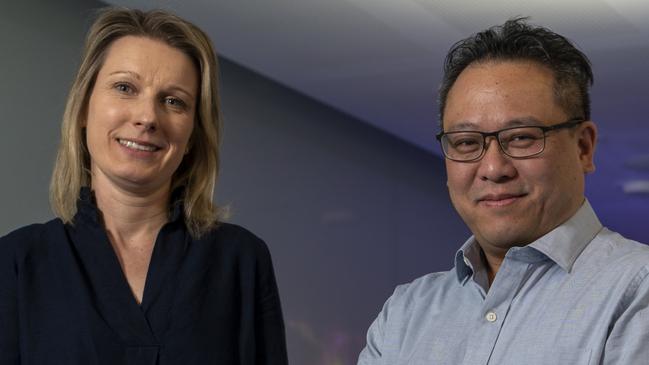WEHI, Peter Mac team make discovery on leukaemia treatment
After a decade of investigation, Melbourne researchers have made a discovery that will lead to new ways to treat an aggressive blood cancer.
Victoria
Don't miss out on the headlines from Victoria. Followed categories will be added to My News.
A discovery described as “surprising, but remarkable” offering hope against a common type of aggressive leukaemia has been revealed by Melbourne researchers.
The team from WEHI and the Peter MacCallum Cancer Centre investigated how to treat acute lymphoblastic leukaemia (ALL), a blood cancer that appears suddenly, grows quickly and often returns after chemotherapy.
Senior author Associate Prof Ashley Ng from WEHI is also a clinical haematologist at the Peter MacCallum Cancer Centre and the Royal Melbourne Hospital.
He said the discovery, that was uncovered with fundamental biology research, was the result of more than a decade of investigation.
“We were looking at new vulnerabilities for this type of B-cell leukaemia because we needed different ways to treat it,” he said. “We wanted to offer hope for new therapies down the track.”

He said the team looked at what was driving the gene changes that made leukaemia and found an Achilles Heel.
“We identified two proteins that were critical for the development of B-cell acute lymphoblastic leukaemia, expanding our knowledge into how these cancers can form,” Prof Ng said.
“By uncovering this, we hope to exploit the findings for therapeutic benefit and also apply them to other forms of the disease.”
The team was able to kill leukaemia cells in the lab and stop cancer cells from growing by using a drug discovered by the Peter Mac to treat lymphoma.
Lead author Dr Kira Behrens, also from WEHI, said it was a surprising, yet remarkable discovery.
“We were able to unravel a new pathway and a potential drug target that can hopefully be used in the fight against leukaemia in the future,” she said.
The study, also a collaboration with Associate Professor Elaine Sanij at St Vincent’s Institute of Medical Research, was published in the journal Science Advances.
More than 300 adults and children are diagnosed with ALL every year in Australia with B-cell the most common subtype.
“Despite the medical advancements made in the cancer field over the years, the incidence of blood cancer has grown by 47 per cent in the past decade,” Prof Ng said.
He said to see research translated into something that can impact patients had always driven his career.
Prof Ng says the next steps will be to develop clinical trials to build on the important preclinical data.





